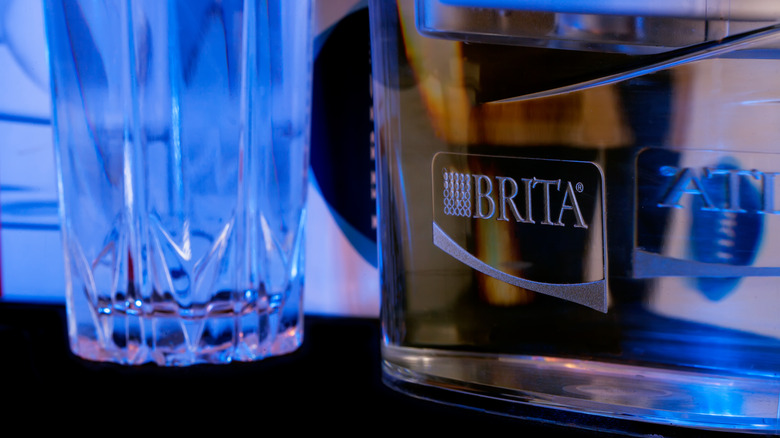Why You Should Stop Using An Old Brita Filter Immediately
Many people love drinking filtered water due to its clean taste and purported health benefits. However, like many products that we use in our daily lives, it's unclear just how much good the water filter is actually doing. Sure, we know Brita filters remove zinc, copper, mercury, and cadmium, but only because the product's box tells us so. However, recent findings may make some folks think twice the next time they open the fridge and reach for their Brita water filter pitcher.
According to Guardian Water Services, Brita filters might not be quite as good for you as their sleek packaging suggests. This is because they are not designed to combat the proliferation of microorganisms, meaning those who fail to change their filters regularly are particularly at risk of elevated bacteria levels in their water. Even worse, the clean, delicious taste of the filtered water you are drinking is unlikely to change significantly, even if your old, unchanged filter is a VIP lounge for bacteria.
When to change your water filter
Before you freak out about the quality of the water you're drinking, it's important to remember that your water's quality is probably strictly regulated by your municipality to prevent an excess of bacteria, according to Healthline. However, as mentioned above, an old water filter could be placing bacteria and microorganisms directly back into your drinking water, making it arguably less healthy than the tap water you avoid. If you're one of the many people who assumes that a water filter's replacement guidelines are a ploy to sell more water filters, perhaps it's time to think again.
Luckily for water filter users, fixing this problem usually requires nothing more than following the instructions included on the water filter box. By regularly changing your water filter every two or three months as the manufacturer recommends, you are ensuring that bacteria and microorganisms aren't able to run rampant in your filter for extended periods of time. Since tap water is typically treated for bacteria, it tends to take at least a couple of months for a substantial build-up of bacteria and microorganisms that can compromise your water and immune system.

